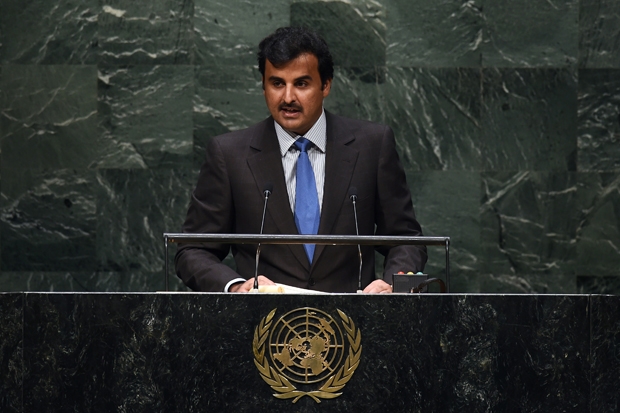On 17 June, a meeting of the Henry Jackson Society, held in the House of Commons, discussed (according to the minutes published on the society’s website) how a tribal elder in northern Cameroon who runs a car import business in Qatar has become one of the main intermediaries between kidnappers from Boko Haram and its offshoot Ansaru and those seeking to free hostages. It was alleged that embezzlement of funds going to Qatar via car imports might be disguising ransom payments. It was also alleged that Qatar was involved in financing Islamist militant groups in West Africa, helping with weapons and ideological training, and (with Saudi Arabia) funding the building of mosques in Mali and Nigeria that preach a highly intolerant version of Islam.
This was far from the only time such accusations have been levelled. Yet Qatar is supposed to be one of our allies, supporting air strikes against the Islamic State. Its ruler even thinks his enormous wealth entitles him to blag his way into Her Majesty’s carriage at Royal Ascot. Given Qatar’s questionable role in the current tide of savage Islamism, should its ruler be allowed anywhere near our Queen? And should they be allowed to buy up our country, as they have done relentlessly since the crash of 2008?
After the overthrow of President Morsi of Egypt, Qatar became a place of refuge for the Muslim Brotherhood. However, on 12 September it asked several leading Brotherhood figures to leave. They duly did, not in outrage or indignation, but apologising for causing embarrassment. Clearly, they felt a debt to the Qataris, and a senior Brotherhood spokesman, Amr Darrag, said what it was. He issued a statement thanking Qataris for their support to ‘the Egyptian people in their revolution against the military junta’.
Qatar asked its former friends to leave because of pressure applied by Saudi Arabia and the United Arab Emirates.








Comments
Join the debate for just £1 a month
Be part of the conversation with other Spectator readers by getting your first three months for £3.
UNLOCK ACCESS Just £1 a monthAlready a subscriber? Log in